Each of us wants to live in a modern and comfortable home, markedly different from the standard buildings, which in our cities, unfortunately, are the majority. In order to change the situation even a little, some hire designers and implement large-scale projects to remodel their apartments, while others try to cope on their own, making repairs in the evenings and on holidays. Despite the financial possibilities of the residents and their ambitions, many unknowingly or deliberately for the sake of economy make illegal redevelopment of the apartment, not even knowing what problems this entails for him personally and the room in which the repair was made. Since such situations are becoming more common, and the responsibility of homeowners is getting tougher every year, we decided to consider this topic in detail in the article. First of all, we will consider the very concept of “illegal redevelopment”, and also give it a legal assessment. In addition, we will tell in detail about the redevelopment of residential and non-residential premises, which fall into the category of illegal.
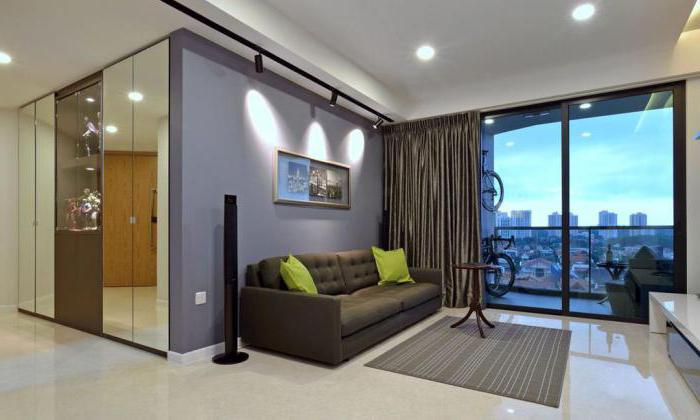
Definition
Most Russians have an idea that the layout of the apartment is reflected in its technical passport. This document indicates the area of rooms and bathrooms, the bearing walls of the room, the location of doorways and windows, as well as other important information. When buying / selling transactions, the seller must familiarize the potential buyer with the technical passport of housing. Moreover, the data in this document should fully correspond to the real state of things. In the event that you notice discrepancies, we can talk about illegal redevelopment.
This term includes any reorganization of the premises without permits of special authorities. Also illegal redevelopment of a house or apartment can be called work done bypassing or contrary to project documentation.
Keep in mind that this term should not be confused with the redecoration of an apartment. The latter may include not only wallpapering and painting the walls, but also the replacement of heating radiators or making adjustments to the balcony decoration.
Types of illegal conversion
Illegal redevelopment of premises can be of two types and this fact must also be taken into account if you are already in a similar situation, having made repairs yourself, or already having acquired an apartment with problems:
- The work performed is considered illegal in the absence of permits. Changes that do not contradict the law fall into this category, but the tenant for some reason did not issue the necessary papers. This oversight made the usual redevelopment illegal.
- The work carried out initially cannot be approved by law. For example, you have demolished a wall that is considered to be a bearing. Even if you try to legitimize this process, you will not receive the necessary papers.
Keep in mind that the responsibility for such a conversion is not only the homeowner who performed the repair work. If you were presented with a similar apartment or you were not careful and bought it for your own money, then you will have to solve the problems with illegal redevelopment yourself. In court, you may be required to bring the housing in proper form (according to the technical passport) and collect a fine. You will not succeed in transferring these problems to the former owner of the premises, who became the culprit of the problem. For all changes, the current owner of the apartment will be responsible.
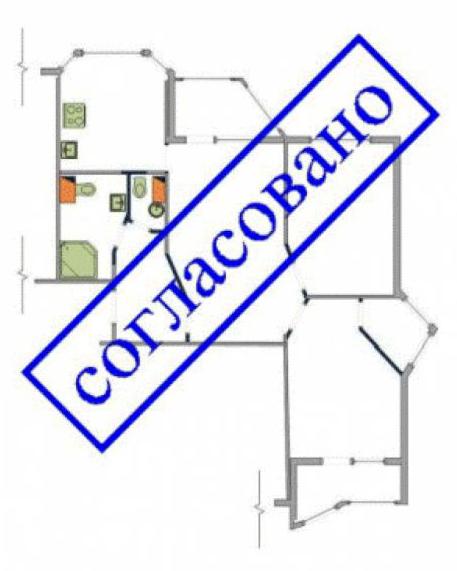
The most common conversion options
Typical space is not always convenient for living a modern family. Therefore, more and more people every year think about the global reconstruction of an existing apartment, especially if they are not able to exchange it for a more spacious and comfortable housing. Most often, owners try to make new apertures in the bearing walls, combine the loggia with the space of the room or kitchen, and also create mezzanines and pantries, not provided for by the layout.
All of what we have listed without fail requires an assessment by a special commission, and only it will issue a verdict prohibiting or authorizing such a reorganization. If the redevelopment was carried out illegally, then tenants should be prepared for a lot of problems. Moreover, it has been established that it is much more difficult to legitimize work already done than planned. In addition, part of the work falls into the category of prohibited. These include, for example, new openings in bearing walls or their demolition. In the next section of the article we will talk more about this category of alterations.
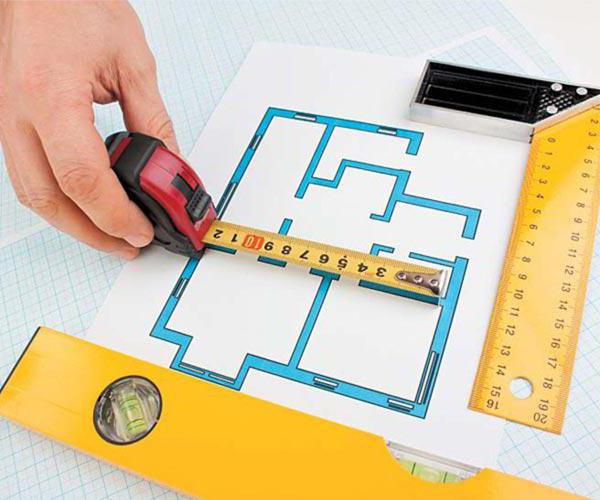
Prohibited Conversion
If, having conceived a repair, you contact a serious specialized organization, then they will immediately tell you which changes in the apartment can be made, and which will never be approved in any way. But those who do all the repairs themselves need to carefully study this issue. According to the housing legislation, the following changes to the premises cannot be made:
- Move the bathrooms so that they are above the living rooms. That is, your toilet and bathroom should in no case be placed above the living room or kitchen of the neighbor. The exception may be only two-level apartments in which both floors belong to the same owner.
- To expand the area of the kitchen due to sanitary rooms. It is also forbidden to transfer the kitchen to the living room area, and the expansion of the bathroom and toilet due to square meters of rooms or kitchen will not be approved.
- Make changes to the location of gas pipes and sewage pipes. The transfer of radiators to the loggia or any other place in the apartment that is not provided for by the project also falls under the ban.
- Make arbitrary demolition of walls, punching new door and window openings. This applies primarily to the supporting structures of the house. After all, additional openings in the bearing walls can cause the building to collapse or the quality of life of other residents of the apartment building to deteriorate.
- It is unacceptable to use the attic for your own purposes and combine it with your apartment.
Keep in mind that in housing officially recognized as emergency, most of the layout changes will be considered illegal. This is especially true of window and doorways, changing the location of rooms and moving walls to another place.
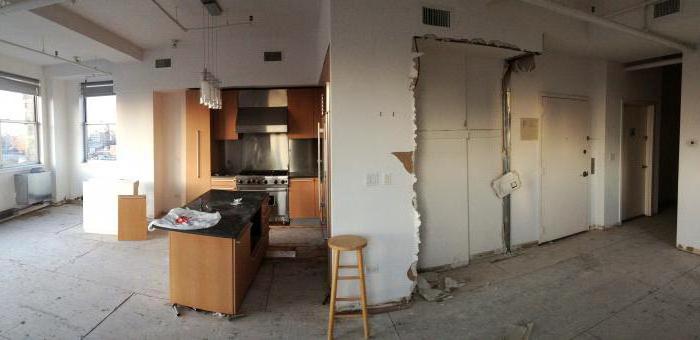
Rescheduling Allowed
Only those changes that do not contradict the housing code and are documented within the deadlines established by law can fall into this category. In the future, a similar alteration will be included in the technical passport of the premises.
However, note that not all redevelopment needs permits. For example, if you entered a new building, you can absolutely easily change one radiator for another, install air conditioners and even new equipment (this rule does not apply to gas equipment). In addition, residents should not inform the appropriate authorities if they plan to install a built-in closet without changing the location of the rooms. The owners of the apartment have the right to replace the finishing materials used by the builders or former residents. All of these changes do not need to be issued, and therefore will not be made to the technical passport of your home. Moreover, such alteration is automatically considered permitted.
However, in cases where you are planning larger changes, coordination with special authorities is necessary. This group of alterations includes the following works:
- Changes affecting load-bearing structures (e.g. brick walls).
- Redevelopment relating to the floors in the apartment: a new screed, laying of warm floors, waterproofing with the expansion of the bathroom.
- Moving toilet or bathroom.
- Installation of new gas equipment or its transfer to another place.
- Any alteration or demolition of structures that are marked in the technical passport for the apartment.
If you nevertheless performed such works without permission, then it is best for you to legalize them as soon as possible. Otherwise, a check may suddenly come up to you and then you will be compulsorily issued a fine for illegal re-planning. However, we will talk about this a little later.
Mortgage: is it possible to redevelop
This question is asked by many owners of residential premises, since most of the apartments in recent years are purchased precisely with a mortgage. If you are planning a major overhaul, then it is worth remembering that a mortgage apartment is usually pledged by the bank. So, the tenants until they pay the mortgage can not take any measures to restructure the premises without the permission of the credit institution.
First of all, owners should contact the bank with an application for approval of redevelopment. If permission is obtained, then it is necessary to start developing a project that can only be done in special organizations. Keep in mind that the bank will control this process at all stages. Its employees can even come to your apartment during the repair and check the project documentation.
However, I would like to note that credit organizations very rarely agree to carry out large-scale repairs in collateralized apartments. What threatens the owner of a mortgage housing unauthorized redevelopment? Let's find out.
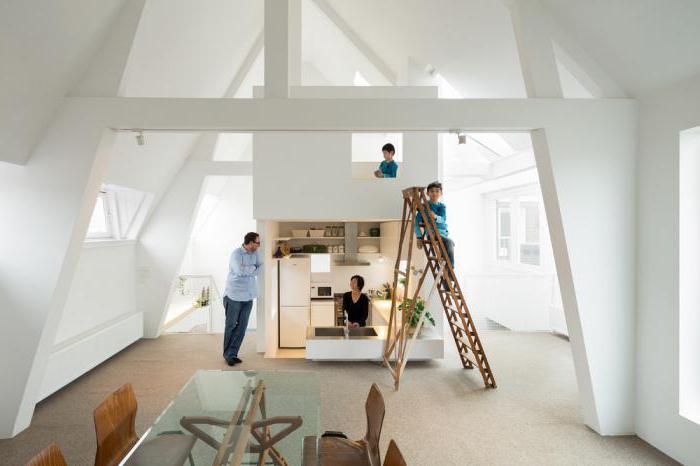
Responsibility for illegal redevelopment in the premises purchased in a mortgage
If you have concluded a loan agreement with the bank, then you are clearly familiar with the clause on the prohibition of any alterations. Therefore, do not hope that your redevelopment will remain unattended by employees of the credit institution.
According to existing practice, bank employees can at any time knock on a collateral apartment and check its condition using a technical passport. Therefore, unauthorized adjustment will be instantly noted and will lead to serious consequences for the borrower.
For example, each year the owner of an apartment must submit an insurance contract for his home to the bank. However, the insurers, having learned about the illegal redevelopment, most likely will not conclude a new agreement, and the credit institution will have the opportunity to terminate the mortgage agreement with you.
Also, the bank may force the borrower to coordinate its repair on a forced basis or pay a penalty after the termination of the contract. In addition, a bank employee who has discovered an illegal redevelopment is required to report this case to the housing inspectorate. In this case, administrative troubles will also be added to the problems with the bank, which will also have to be solved in an accelerated manner.
Consequences of unauthorized redevelopment
Suppose you made an illegal redevelopment of Khrushchev’s, and these changes were later recorded by a special commission. What threatens you in this case? Responsibility for their actions worries many owners who have decided on unauthorized changes. After all, it can be very serious for residents.
First of all, they will be fined. Its size ranges from two to two and a half thousand rubles. If the redevelopment was carried out not in an apartment building, but in a private one, then the maximum amount of the fine will be one and a half thousand rubles.
However, not only a monetary penalty is included in the concept of responsibility for unauthorized restructuring. If a lawsuit is filed against you, then by his decision it will be necessary to bring the apartment back to its original form. And in some cases it will require considerable financial costs.
The court may also deprive you of the right to use housing. This is especially true when the apartment is not owned. The social contract of employment is very quickly terminated, and the former tenant has every chance of being on the street.
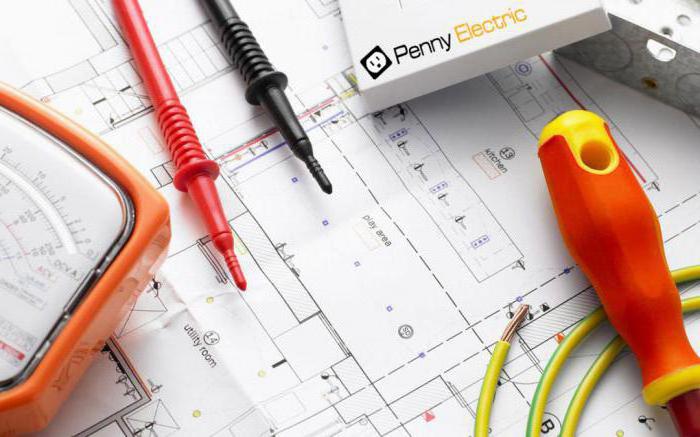
Illegal redevelopment of non-residential premises
To conduct almost any business, an entrepreneur needs a room, and for these purposes ordinary apartments are not suitable. Therefore, there is a procedure for transferring residential premises to non-residential. For example, this can be done with the usual "Khrushchev". Redevelopment in this case should also be coordinated with all authorities. That is, the entrepreneur does not have the right to arbitrarily rebuild the non-residential premises, because in this case he will face administrative punishment and a rather impressive fine. According to recent reports, it ranges from three hundred to three hundred and fifty thousand rubles.
However, it is planned to introduce more severe punishment for illegal alterations of premises recognized as non-residential. Indeed, such repairs can often cause even the collapse of buildings. For example, the demolition of a bearing brick wall on the ground floor, which is often done to equip shops in residential apartment buildings, makes the structure unstable and leads to cracks in the facade.

How do housing inspectors find out about unauthorized redevelopments?
Sometimes it seems to residents that no one can find out what they are doing in the apartment. However, as practice shows, a single complaint about illegal redevelopment, sent to the appropriate authorities, is enough for unlucky owners to face a lot of problems.
Your neighbors who consider that redevelopment violates their interests and is illegal can make a complaint. Even an anonymous message can be reviewed and verified.
In addition, HOA staff can report unauthorized alterations. Their immediate responsibilities include monitoring the safety of people living in apartment buildings. Therefore, they may well initiate a check in a particular apartment.
Also, the housing commission can start checking for any call or paper. And in it it is not necessary to list all the alterations, it will be enough just to express suspicions of illegal redevelopment.
Keep in mind that if the commission determines the fact of unauthorized reconstruction of the premises, then the solution of all problems will cost you much more than the initial receipt of a permit for repair work of one nature or another. Therefore, we advise you not to hope for luck, but to prepare the necessary package of papers in advance. Then you don’t have to be afraid of the employees of the housing commission, and the repairs made will please you exactly until you decide to change your living space again.